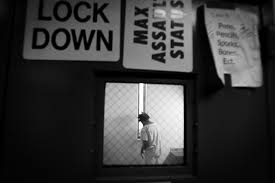
The Treatment Advocacy Center in conjunction with the National Sheriff’s Association released another damning report today about the growing number of persons with serious mental illnesses being locked-up each year. Entitled: “The Treatment of Persons With Mental Illness in Jails and Prisons: A State Survey,” the report says there are ten times more people with serious mental illnesses in state prisons (207,000) and county jails (149,000) than there are in state mental hospitals (35,000.)
In 44 of our 50 states, the largest single “public mental institution” is a prison or jail. The report noted that Cook County Jail in Chicago, Shelby County Jail in Memphis, and Polk County Jail in Des Moines, individually hold more inmates with serious mental illnesses than all of the state mental hospitals in Illinois, Tennessee, and Iowa.
The ten times figure is significantly higher than what was found in a similar study done four years ago and released by TAC, a non-profit mental health advocacy group. In that study, the number of mentally ill individuals in prisons and jails outnumbered those in state mental hospitals by a three to one margin.



